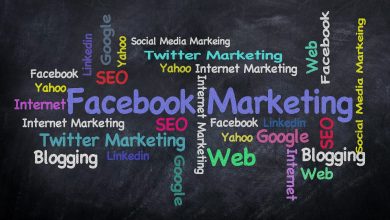
From pharmaceuticals and cleaning products to groceries, private labeling is a common practice. As a product maker, several benefits of private labeling include greater earnings and less competition, making it a promising opportunity. “Generic” items are not what they appear to be: private labels contend against branded items at a lower price point and are sometimes supplied in bulk. Shop keepers and manufacturers benefit from private labeling through positive ROI, a widespread kind of retailing.
What Is Private Labeling?
Certain businesses or people will want their items sold under your brand name without acknowledgment if you plan on being a private label manufacturer. They can either choose to sell their products in conjunction with other goods or on their own. Private labeling is an excellent method to get started with no prior expertise in marketing a new product. For a more efficient and productive outcome, plenty now includes artificial intelligence in manufacturing.
You can guarantee that customers will prefer to buy your products via more well-known manufacturers than from a new firm that has never dealt with customers before. However, it is necessary to have merchandise that sells by itself, without the assistance of advertisements or promotional items. Below are its advantages
Loyalty
The most critical factor in long-term company success is establishing a devoted consumer base. Using private labeling to brand your good and services is a terrific method to build customer loyalty. Customers become attracted to your brand because of its restricted accessibility, making them feel like they take ownership of it or invest their wallets in it. Customers’ loyalty and sales are both boosted as a result of this strategy.
Customers in the past saw branded stuff as better compared to those made by smaller companies. However, in today’s world of excellent-quality products, retail trademark or private label products have created a reputation for themselves. Thanks to superior product developments and enhanced production techniques, private label items have reached higher quality standards and reliability.
Since then, they’ve become “luxury” private label products. Shoppers are now more loyal to one business since they know they can only get the goods there, resulting in a higher recognition for private label items and a spike in brand loyalty.
Huge Profit Margin
When compared to resale products, private labeling brands often have a higher profit margin. The reason is primarily due to the substantially decreased costs of generating your own product versus acquiring prefabricated products, especially if the advertising and development of the product are of excellent quality.
Building a consumer base, designing products, and launching promotional strategies require a strong brand personality. However, if you own a company, you are most likely well aware of how branding takes too much of a person’s time and how costly it can be.
The company’s private-label brand is often used on private label products. Marketing, packaging, and manufacturing are designed by the end retailer rather than you as the item’s producer, which saves money. You merely pay the product’s price, not a markup for the store brand or costly promotional strategies.
Wholesale Profits
Other than having your product sold exclusively, consider establishing a wholesaling enterprise for your brand, which provides restricted access to retail outlets willing to pay a higher purchase price in exchange for the right to display your brand. This will not only increase your revenue but will also increase your brand’s exposure.
Exclusivity
You can set yourself apart from your competition by using private labeling. One of the most important advantages of private labels is the power of being the only owner of your products, which gives you the exclusive right to sell them however you want to. With an effective promotional strategy in place, demand will eventually rise, which will benefit you because you are your consumers’ only supplier for the goods.
More Affordable Operational Expenses
Items with a private label must be self-contained and not reliant on large-scale advertising initiatives to be successful. The products you select should sell for five or six times their production cost regularly. There is enough opportunity for price cuts for private-label products under this arrangement.
When it comes to manufacturing costs and big volume production, most of the goods selected are less expensive. Manufacturing and distributing all items to a single client is more cost-effective for producers because retail chains purchase most private label commodities in bulk. As a result of both causes, you will notice lower operational expenses.
Your business might benefit significantly from private label profits. During periods of high demand, they allow boosting sales. Appropriately, they can also help expand the company’s bottomline and raise its reputation and trustworthiness with customers.





